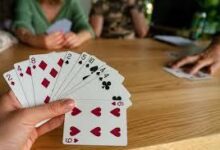Top J.League Managers of the Last Decade Ranked

Discover the top J.League managers of the past 10 years, ranked by impact, titles, and tactical innovation. A must-read for league fans.
Ranking the Best J.League Managers of the Decade
The J.League has grown into one of Asia’s premier JOMCUCI66 competitions — not just through player development or infrastructure, but due to brilliant tactical minds who’ve shaped the league’s identity. Over the last decade, a new generation of managers has emerged, delivering entertaining football, innovative strategies, and silverware while staying true to Japanese footballing values.
From title-winning veterans to game-changing tacticians, this article ranks the best J.League managers of the decade, analyzing their influence, consistency, and legacy in shaping the league’s growth and global recognition.
🥇 1. Toru Oniki (Kawasaki Frontale)
Years Active: 2017–present
Major Titles: 4 J1 League Titles, 1 Emperor’s Cup, 1 J.League Cup
No manager has dominated the J.League like Oniki over the past 10 years. His era at Kawasaki Frontale marked a shift in the league’s style — from cautious build-up to fluid, high-tempo attacking football.
His ability to:
- Rotate squads efficiently
- Develop youth (e.g., Ao Tanaka, Kaoru Mitoma)
- Maintain consistent tactical identity
…has made Kawasaki a powerhouse. Oniki’s long-term project is a blueprint for sustainable success in the league.
🥈 2. Ange Postecoglou (Yokohama F. Marinos, 2018–2021)
Major Titles: 2019 J1 League Champion
Though his time was short, Ange revolutionized Yokohama F. Marinos. His ultra-attacking style based on possession and overlapping full-backs transformed the team into entertainers — eventually leading them to their first title in 15 years.
His tactical innovation also elevated the league’s profile internationally, and many of his principles have influenced other Japanese clubs. Ange’s tenure was a turning point in modern J.League football.
🥉 3. Ricardo Rodríguez (Urawa Red Diamonds, 2021–2023)
Major Titles: 2022 Emperor’s Cup, 2022 AFC Champions League
Ricardo brought structure and discipline back to a struggling Urawa Reds squad. While not always title-contenders in the league, they were extremely effective in knockout competitions, including winning Asia’s most prestigious title in 2022.
His tactics emphasized:
- Positional intelligence
- Compact midfield pressing
- Rapid transitional play
Ricardo gave Urawa a tactical identity missing since their mid-2000s peak.
🔝 4. Hiroshi Jofuku (FC Tokyo, Sanfrecce Hiroshima)
Major Achievements: Consistent top-4 finishes, 2015 J.League Cup Finalist
A manager often overlooked in conversations, Jofuku is known for elevating mid-tier teams. He led FC Tokyo and Sanfrecce Hiroshima to strong finishes, developing talents like Takefusa Kubo.
His teams are known for:
- Tactical discipline
- A focus on homegrown players
- Defensive solidity with fast flanks
Though not highly decorated, his longevity and consistency across clubs earn him a place in this list.
🧠 5. Mihailo Petrović (Consadole Sapporo)
Years Active: 2018–present
Notable Achievement: Establishing Sapporo as a competitive force
Petrović hasn’t won a title, but his impact at Hokkaido Consadole Sapporo is undeniable. He helped the club rise from relegation battles to mid-table stability, and occasionally top-6 contention.
He emphasized:
- Intelligent, short passing build-up
- Overlapping center-backs
- Youth development
His tactical boldness in a smaller-market club makes him a cult hero among league fans.
⚔️ 6. Tsuyoshi Otsuki (Urawa Reds, Vegalta Sendai)
Impact: Tactical experimentation, youth integration
While Otsuki doesn’t boast a strong trophy cabinet, he’s been instrumental in:
- Introducing modern pressing systems
- Giving consistent minutes to young Japanese talent
- Elevating squad morale in challenging environments
His work laid the foundation for future coaches to succeed at Urawa and beyond.
💼 7. Massimo Ficcadenti (Nagoya Grampus)
Years Active: 2019–2022
Major Titles: 2021 J.League Cup
Ficcadenti, an Italian tactician, brought European rigidity and tactical compactness to Nagoya Grampus. His pragmatic approach transformed them into a defensively solid side capable of upsetting the biggest teams.
His man-management skills and game-to-game flexibility helped elevate Nagoya’s profile domestically and in Asia.
🛠️ 8. Akira Nishino (Japan NT, Gamba Osaka)
Legacy Title: Japan’s 2018 World Cup run; J.League foundational work
While most know Nishino for his role with the national team, he deserves recognition for his early managerial contributions in J.League, particularly with Gamba Osaka. He helped modernize tactical setups in the early 2010s and mentored several future Japanese coaches.
💫 Honorable Mentions
- Takeshi Okada – For mentoring the managerial generation post-2010.
- Yoshida Katsumi (Shonan Bellmare) – For doing more with less and cultivating youth.
- Toru Sano (Oita Trinita) – For tactically competitive matches against the big clubs.
🔍 Why Managerial Talent Matters in the J.League
What makes these coaches stand out isn’t just silverware. It’s their ability to:
- Adapt tactics in a fast-changing league
- Elevate homegrown players
- Handle pressure from fans and media
- Maintain club identity while competing
Unlike European leagues, where money can heavily sway results, the J.League’s salary caps and community-first model mean coaching quality often makes the biggest difference.
📣 Support the League: Appreciate the Managers
These coaches aren’t just tacticians — they’re architects of a growing football culture. As the J.League continues to gain respect globally, these managers will be remembered as the minds behind its evolution.
Support the league by learning their stories, following their journeys, and appreciating the art of management in Japan’s top flight.



